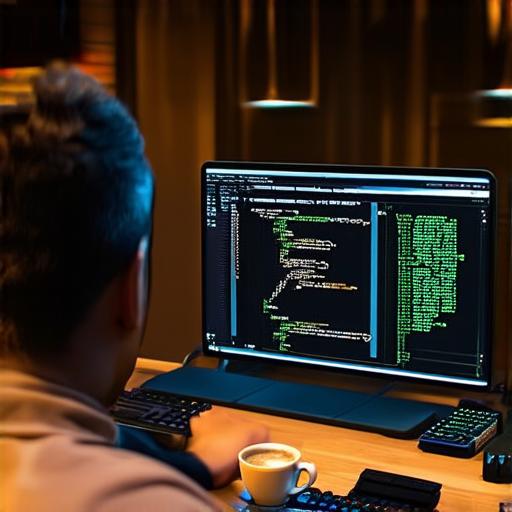Here’s the corrected HTML code for the article:
Are you passionate about creating interactive and engaging games that captivate players for hours on end? If so, becoming a game developer might be the perfect career choice for you. In this article, we’ll explore what it takes to become a game developer, the different roles within the industry, and the skills and qualifications required to succeed.
Becoming a Game Developer: A Step-by-Step Guide
While there is no one-size-fits-all approach to becoming a game developer, most professionals have a degree in computer science or a related field. A bachelor’s or master’s degree in computer science, game design, or a similar major will provide you with the foundational knowledge and skills needed to pursue a career in this field.
Education
In addition to a strong educational background, game developers need to have a range of technical and creative skills. These include proficiency in programming languages such as C++, Python, and Java; knowledge of game engines like Unity and Unreal Engine; and experience with game design tools like Photoshop and 3D modeling software.
Portfolio
A strong portfolio is essential for any aspiring game developer. Your portfolio should showcase your work in a variety of formats, including screenshots, demos, and videos. It should demonstrate your ability to create engaging and interactive games that are visually appealing and well-designed.
Networking
Networking is crucial for game developers. Attend industry events, join online communities, and connect with other professionals in the field. This will help you gain valuable insights into the industry and make connections that could lead to job opportunities.
The Different Roles Within Game Development
Game development is a complex and diverse field that involves a wide range of roles and specializations. Some of the most common roles within game development include:
- Game Designer
- Programmer
- Artist
- Producer
- Quality Assurance (QA) Tester

Game Designer
Game designers are responsible for creating the overall concept, mechanics, and structure of a game. They work closely with other members of the development team to ensure that the game is fun, engaging, and meets the needs of its target audience.
Programmer
Programmers write the code that brings games to life. They use programming languages like C++, Python, and Java to create the game’s logic, graphics, and sound effects.
Artist
Artists are responsible for creating the visual elements of a game, including characters, environments, and objects. They work closely with game designers to ensure that the art style is consistent with the overall vision of the game.
Producer
Producers oversee the entire game development process, from pre-production to post-production. They are responsible for managing budgets, schedules, and resources, as well as ensuring that the game meets quality standards and is delivered on time.
Quality Assurance (QA) Tester
QA testers are responsible for identifying and fixing bugs and other issues in a game. They work closely with developers to ensure that the game is free of errors and runs smoothly.
Skills and Qualifications Required to Succeed as a Game Developer
Becoming a successful game developer requires a combination of technical and creative skills, as well as a strong work ethic and attention to detail. Some of the most important skills and qualifications required to succeed in this field include:
культуры
Technical Skills
- Proficiency in programming languages like C++, Python, and Java
- Knowledge of game engines like Unity and Unreal Engine
- Experience with game design tools like Photoshop and 3D modeling software
- Familiarity with version control systems like Git
Creative Skills
- Strong problem-solving skills
- Ability to think outside the box
- Good communication skills
- Attention to detail
Personal Qualities
- Self-motivation and a strong work ethic
- Ability to work well in a team
- Willingness to learn and adapt to new technologies
- Passion for gaming
Proficiency in programming languages like C++, Python, and Java
Proficiency in programming languages such as C++, Python, and Java is essential for game developers. These languages are used to create the code that brings games to life.
Knowledge of game engines like Unity and Unreal Engine
Game developers need to have knowledge of game engines like Unity and Unreal Engine. These engines are used to create the framework for games, making it easier to develop and manage the game’s code.
Experience with game design tools like Photoshop and 3D modeling software
Game developers should have experience with game design tools like Photoshop and 3D modeling software. These tools are used to create the visual elements of a game, such as characters, environments, and objects.
Familiarity with version control systems like Git
Game developers should be familiar with version control systems like Git. These systems are used to manage changes to the game’s code, making it easier to collaborate with other developers and track changes over time.
Strong problem-solving skills
Game developers need strong problem-solving skills. They must be able to identify issues in the game’s code or design and find solutions to fix them.
Ability to think outside the box
Game developers should have the ability to think outside the box. They need to be creative and come up with innovative ideas for games that will capture players’ attention.
Good communication skills
Game developers should have good communication skills. They must be able to work with other members of the development team, including designers, artists
